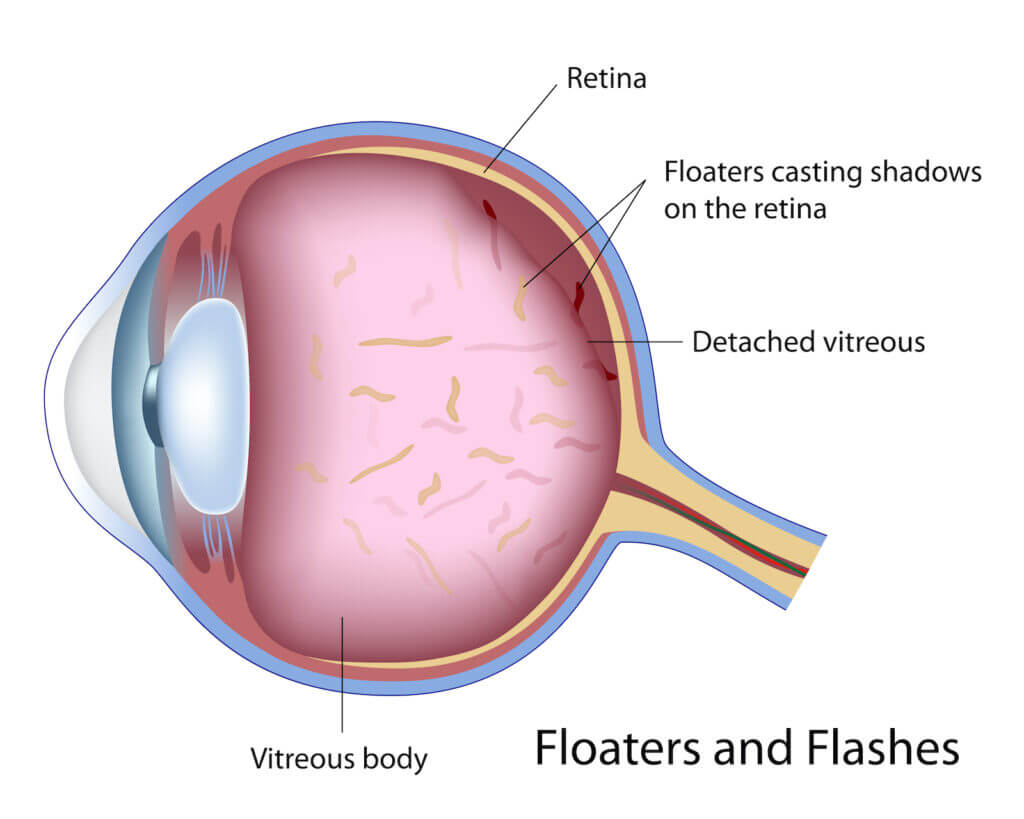
What are Flashes and Floaters?
Flashes and floaters are related symptoms that cause patients to see flashes of light or floating specks, respectively. Experiencing flashes and floaters occasionally is extremely common, especially as patients age and the symptoms are most often completely benign. However, if they begin to occur regularly or are so intrusive that they interfere with everyday tasks like driving or work, then this can be a sign of a serious problem that demands immediate attention from an eye doctor.
What Conditions Cause Them?
Both flashes and floaters are caused by a separation from the vitreous – the fluid in the middle of the eyeball – from the solid retina surrounding it; the formal term for this is “posterior vitreous detachment.” While this sounds like a gravely serious event, such a separation is most often caused by something as simple as a hard sneeze or a cough, and it typically lasts only for a few seconds. These phenomena are also common with aging since vitreous fluid typically begins to shrink over time, and this is entirely normal. However, chronic or severe symptoms could be the result of a detached or torn retina; this a serious condition that can result in blindness if not treated with surgery.
The finer difference between flashes and floaters is that the former is simply the result of the separation between the vitreous and retina (causing pressure on the light-sensitive retina), while the latter is the actual shadow of tiny cells or gel specks floating inside the vitreous.
What Are the Symptoms of Flashes and Floaters?
Flashes are precisely what they sound like – flashing lights – and are sometimes described as resembling lightning streaks. They are similar to the “seeing stars” sensation that many people experience after being hit in the eye.
Floaters are dark specks or blotches that move across the patient’s field of vision. They can come in many shapes and sizes, including lines, circles, or “cobwebs.” Floaters are usually more apparent if the patient is looking at a plain surface, like a wall.
In most cases, these symptoms disappear in just a matter of seconds, but in serious instances that may be caused by a detached retina, they could last much longer or even indefinitely.
Treatment Options for Flashes and Floaters
Most flashes and floaters are benign and require no treatment. However, those caused by a torn or detached retina will almost always require surgery. Depending on the degree of damage to the retina, several different surgeries are available, and the prognosis is generally good so long as the retina’s most important part, the macula, hasn’t been detached.
Contact Spectrum Eye Physicians Today!
Schedule your appointment online or call us at 408-884-2215. No matter which of our locations you visit, you will receive the latest in eye care technology from friendly eye doctors and staff committed to serving you.
Request Appointment